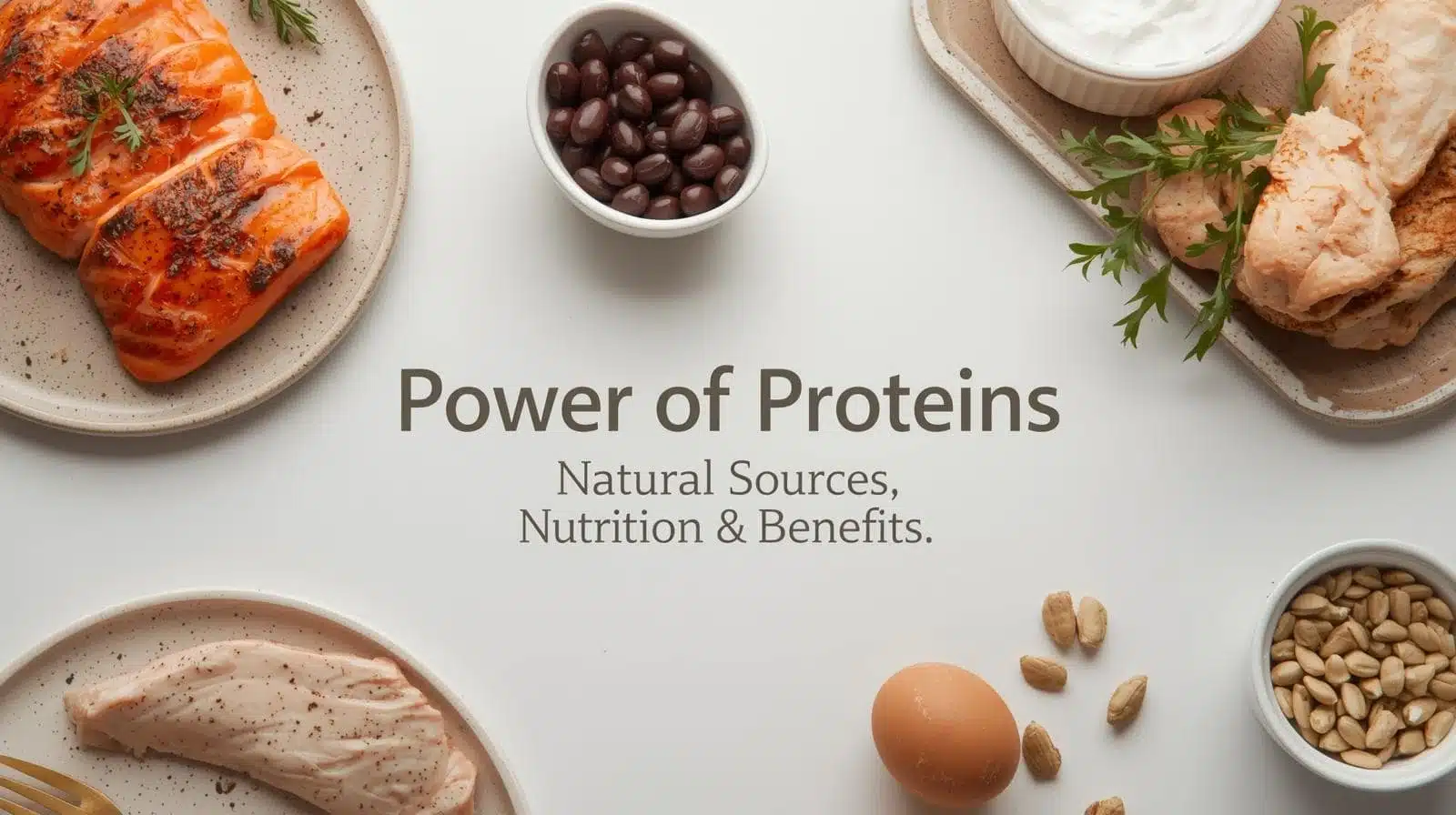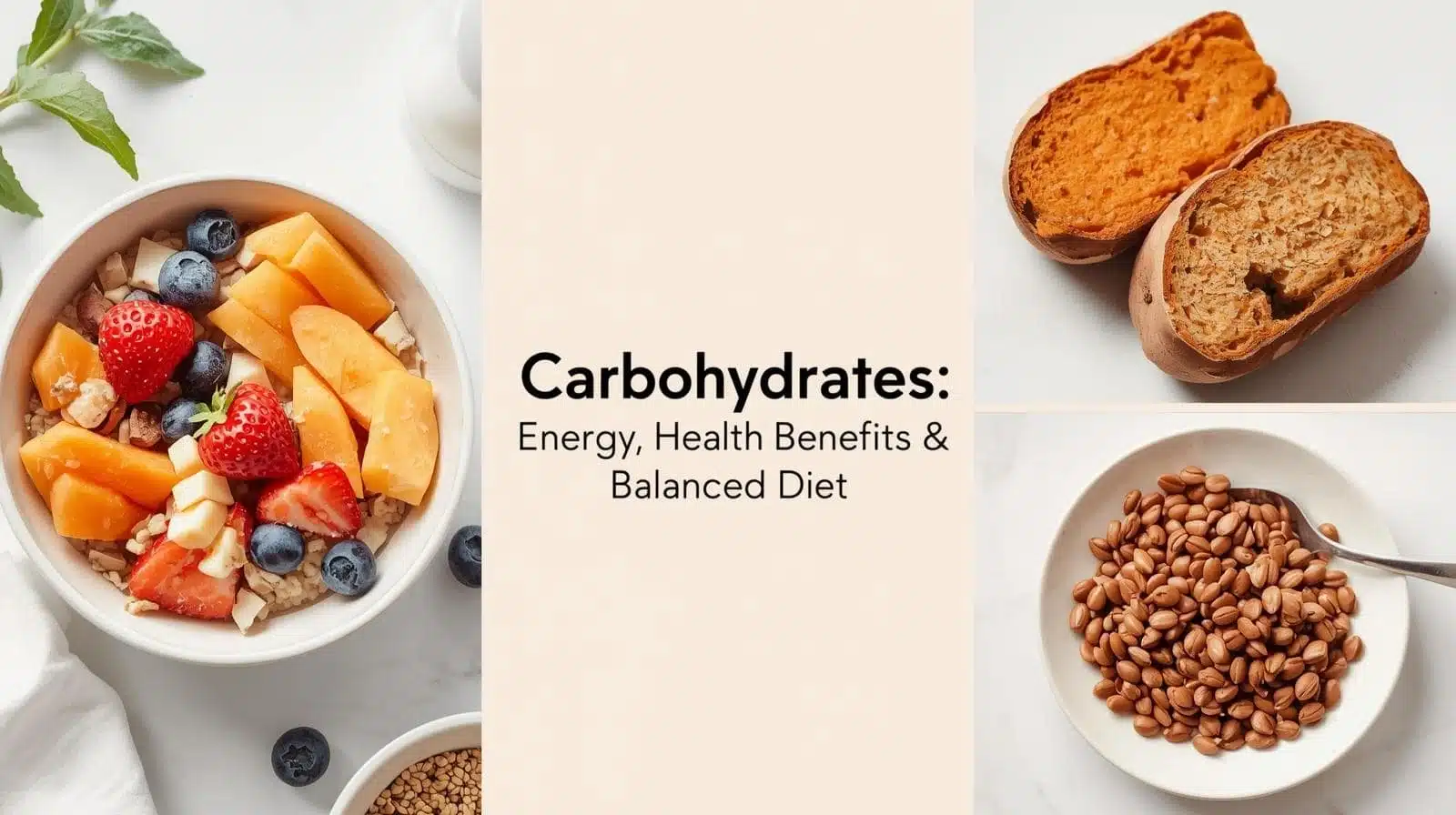
Introduction
The minerals are inorganic nutrient (elements) that are now acting as a category of nutrients, called micronutrients. The body needs them in extremely low doses and can not manufacture on its own. We must get them out of food or water. These play key roles in hundreds of physiological and biochemical processes. Any of them may cause serious health conditions in case of a lack.
Minerals do not contain calories, unlike the macronutrients which have the capacity to supply the body with energy. They are, instead, catalysts of metabolism. They help the body to effectively convert food into energy and carry out numerous other functions.
Minerals are inorganic elements (in soil and water) that either get absorbed by plants or directly fed on by animals. The body does not produce them itself. Hence we should get them by way of balanced diet or by means of supplement in some instances.
Minerals have broadly two categories based on the quantity the body requires. Macrominerals, such as calcium, phosphorus, magnesium, sodium, potassium, chloride, and sulfur. We need them in relatively large amounts, typically over 100 milligrams per day.
On the other hand, we require trace minerals, but in small amounts, such as usually less than 100 milligrams per day. They include iron, zinc, iodine, and a myriad of others such as manganese, copper, selenium among others. The classification identifies the varying degrees of their need. And gives prominence to the fact that the two are essential in health and well-being.
Read Also: How Long Does It Take For Vitamins To Start Working?
What roles do major and trace minerals play in the body?
The background roles give a complete story of how to appreciate in detail functions of each mineral.
Macrominerals: The Body’s Foundational Builders
Macrominerals are the keystones of body composition and body functioning. We need these in large amounts to provide basic systems. In this section, the researcher discusses the most important macrominerals and their individual functions in keeping the body healthy.
Calcium:
It is the most plentiful mineral of the human body. Calcium makes up 1.5 to 2 percent of the total body weight and more than 99 percent of calcium is contained in the bones and teeth. The major and most widely known use of it is in the development and sustainment of a robust skeletal system. Calcium plays a role in the development of peak bone mass at the young age. One of the crucial elements in avoiding such later-on issues like osteoporosis and bone fractures. Shortage of adequate calcium with time may cause bone mineral density to decrease which is referred to as osteopenia.
Calcium besides being important in structure also plays an important role in many physiological processes. Normal blood clotting, contraction and relaxation of muscles, nerve and heart proper functioning are necessitated by it. One role that is especially important is the role it plays in ensuring healthy blood pressure levels.
Calcium assists blood vessels to contract and dilate, which is part and parcel of the process of maintaining heart health. The body values such essential functions to the extent, that in extreme instances of dietary deficit. It will dissolve the bone to contain the desired amounts of calcium in the blood, an example of the importance of the mineral to survive.
The most common sources of calcium foods are dairy food, such as milk and yogurt, and the canned fish type with bones, such as salmon and sardines. In people who abstain to consume dairy. Good replacements include fortified foods such as tofu and soy based beverages, or some vegetables, such as broccoli, kale, and bok choy.
You May Also Read: Essential Nutrients for Every Age Group (2025 Guide)
Magnesium:
Magnesium is a critical mineral needed in a host of body functions. It is cofactor in more than 300 reactions. Its activities are varied, such as synthesis of proteins, blood sugar regulation, nerve/ muscle activity and blood pressure. It is also the important contributor to the energy production system in the body. And plays a key role in electric conductivity of the nervous system.
A magnesium deficiency or hypomagnesemia may cause various symptoms. The symptoms include muscle twiches, cramps and spasms. By balancing calcium levels, it is vital as the mineral in the regulation of muscle contractions. Nonetheless, there are mental and emotional consequences of a deficiency. Magnesium helps with activity of neurotransmitters, including serotonin, which affect mood and emotional wellbeing.
Consequently, the result of low magnesium level is mood swings, anxiety, irritability, and mild depression. Studies also indicate that magnesium supplementation can also benefit mild anxiety and insomnia symptoms. Magnesium occurs in numerous foods and it is therefore easy to obtain in a balanced diet. Excellent sources consist of leafy green vegetables and nuts and seeds and legumes and whole grains and seafood.
Potassium:
Potassium is a systemic electrolyte that concentrates mostly in the cells in the body where it plays an important role in ensuring to maintain the fluid and pressure. Together with the sodium that is the major outside-cells electrolyte. Potassium aids to balance fluid levels and plays vital roles, such as nerve transmission and muscle contracting. This balance is so important that disruption of the same may result in diverse disorders.
The role that potassium plays in the health of the heart cannot be overemphasized. It plays a critical role in the optimal operation of the heart muscle and plays a major role in controlling blood pressure. Potassium deficiency may cause a rise in blood pressure and a greater potential of kidney stones.
A lot of fruits and vegetables contain high levels of potassium such as bananas, sweet potatoes, avocados, and fresh fruits. Additional sources of good diets are meats, milk, legumes, and the whole grains.
Sodium and Chloride:
Other important macrominerals are sodium and chloride that acting in concert as electrolytes help to retain the fluid balance in the body. And that the proper pressure between cells and the surrounding fluids. Although cells contain potassium as their main electrolyte. The electrolytes that are the most important electrolytes in the fluid around body cells. And that are very necessary in the normal functioning of the nerve and muscle are sodium and chloride. Chloride also directly involves in the synthesis of hydrochloric acid which is essential in the stomach.
They are the primary source of diet in table salt chemically named as sodium chloride. Processing foods also contain large amounts. Although they are found in smaller amounts in milk, meats, and vegetables.
Phosphorus and Sulfur:
Phosphorus is another mineral essential for the formation of bones and teeth, as the bone contains about 85 percent of phosphorus in the body. Nevertheless, its operations are extensive, it can be located in any cell. And is an important constituent of high-energy phosphate compounds, including adenosine triphosphate (ATP). Without which, the body is unable to meet its metabolic potential and process energy.
Phosphorus is also significant in the maintenance of acid-base equation of the body. The sources of food consist of meat, fish, poultry, eggs, milk and grain products. Protein molecules contain a mineral known as sulfur. And we need in the diet as a part of proteins in foods, like meat, poultry, fish, eggs, and milk.
Read Also: What Is Fibermaxxing and How to Start It Safely?
Trace Minerals: Small Amounts, Massive Impact
We need trace minerals in lesser quantities but they are no less important towards us giving our best health. Their roles are in a broad variety of biological processes.
Iron:
Iron is a very important element of hemoglobin which is the protein in red blood cells that transports oxygen to all body parts and organs. It is also a component of myoglobin that aids in the delivery of oxygen to muscle cells. This transport base of oxygen is connected directly to the amount of energy in the body and cognitive ability.
Iron deficiency is a major cause of anemia which is a disease whereby the number of red blood cells is low or the amount of hemoglobin is less. Iron deficiency anemia may cause symptoms such as persistent a lack of energy and tiredness, shortness of breath, palpitations of the heart are noticeable, and skin paleness.
Anemia is a major health concern in the world, with a high proportion of cases children and expectant mothers being experience. And may have disastrous effects, such as greater danger of death of the baby and of the mother.
One of the many questions people have is the possibility of low iron leading to hair loss. The fact indicates that there is a close relationship between iron deficiency and shedding of hair. One theory that has prevailed is that low iron stores affect hair follicles, holding back their growth whereas causing excessive shedding. The positive side is that iron deficiency hair loss is usually reversible, as soon as we ingest more of it and get sufficient levels once more.
Iron exists in two different forms namely: the heme Iron which we obtain through animal foods and the non-heme through plant foods. Meat, poultry and fish are the most suitable foods to serve as a source of heme iron. The non-heme sources of iron are plant-based, which are beans, lentils, and fortified breads and cereals. To improve absorption of non- heme iron, consumption of non- heme iron along with foods with Vitamin C is advisable. Since this vitamin assists the body in absorbing the mineral better.
Zinc:
Zinc is a primary trace element with a key role, as cofactor to more than 3,000 proteins and enzymes, coded in the human genome. It has far-reaching functions and enhances immunity, skin, wound healing, growth, taste sense, and smell.
The zinc deficiency may have various symptoms. One of the most characteristic ones is the skin change, as it may encompass the emergence of a rash. That may be just like an eczema and it cannot be treated with standard methods. Whether it is having wounds or not, the body loses the capability to heal wounds because zinc plays a critical role in healing tissues. Poor immunity is also other indicators of deficiency thus increasing vulnerability to infections. Along with hair alterations, and retarded child growth.
Animal food materials are the most ideal sources of zinc that the body absorb well through oysters, red meat and poultry. Others like nuts, whole grains and dairy products. Some groups are more susceptible to zinc deficiency such as vegetarian people, pregnant women, and the elderly. This is because of reduced absorption by plant-based foods and changes as a result of age.
Iodine:
Iodine is a trace mineral, which participates in the production of thyroid hormone. These hormones have a great variety of functions in the body. Specifically healthful growth and cognitive growth in kids and infants. Excessive deficiency in iodine may cause the brain damage and other severe health disorders. These are stillbirth and birth defects in pregnancy.
Luckily, there is a major public health campaign in planning to fortify salt with iodine, which has achieved much in curbing deficiency of iodine in the world. Major food sources of iodine are fish and salt which is iodized.
Read Also: Power of Proteins: Natural Sources, Nutrition & Benefits
Other Essential Trace Minerals
Several other trace minerals are also of important, special purpose to the body:
- Chromium: Aids the body in the utilization of insulin to control the sugar levels.
- Copper: This belongs to many enzymes and involved in oxidation-reduction reactions in energy metabolism.
- Fluoride: It plays vital role in bone and teeth formation and it is used to prevent cavities.
- Manganese: Is essential to build bones and activate some of the enzymes.
- Molybdenum: This is crucial to increase the activity of some enzymes and normal cell activity.
- Selenium: This is necessary to the functionality of antioxidant enzymes which help to protect cells against damage by the free radicals.
Common Mineral Deficiency Symptoms
A mineral deficiency may be hard to diagnose since the symptoms are not always explicit and may be confusion with other diseases. The following section presents a summary of the most frequent signs and the possibly causing minerals. It is worth mentioning that such symptoms do not represent a certain diagnosis. And a medical worker must be always consulted.
Symptoms of mineral deficiencies in many cases occur in several body systems at a time, and forms a chain of complications.
Fatigue and Low Energy: This is one of the most common symptoms of a mineral deprivation. It may indicate a deficiency of low levels of iron, magnesium, or potassium. Fatigue, with regard to iron, is a direct cause of anemia. Which decreases the amount of oxygen to the body cells and makes one feel tired. In the case of magnesium, the deficiency influences the energy production on the cellular level causing sluggishness and brain fog.
Muscle Cramps and Weakness: Having painful muscle cramps or feeling weak consistently are an important statement of an issue. They are usually an indication of magnesium, potassium or calcium deficit. Since these minerals play a crucial role in the normal functioning of the body and the contraction of the muscles, as well as, in the conduction of nerves. Deficiency in magnesium such as that can result in overstimulation of muscle nerves by calcium, resulting in muscle cramps and tremors.
Hair and Nails: The nails and hair can also give indications on the health of the nutrient. Deficiency of iron, zinc, or selenium can be attributed to brittle nails, thinning hair or loss of hair. The minerals play a crucial role in strengthening and developing hair and nails. With iron, deficiency decreases the supply of oxygen to the scalp affecting the wellbeing of hair follicles and growth.
Immune System and Wound Healing: Frequent infections may also indicate vitamin deficiency due to a weaker immune system, which is also a result of a deficiency of zinc or selenium. Zinc is also of essence because the body needs it to combat infection. And its lack could render person more prone to health. In the same, the cuts or bruises take more than normal time to heal. This may be due to a lack of zinc. Since the mineral is necessary in repairing tissues and in cell proliferation.
Mood and Mental Clarity: Such minerals as magnesium and zinc are essential to brain activity and emotional health. Deficiency of these nutrients may result into symptoms. Also, mood swings, an irritable feeling, anxiety or a feeling of mental numbness. An example of such is the magnesium which assists in the key neurotransmitters that affect mood and emotional state.
When to See a Doctor?
This is because many of the symptoms of deficiencies are nonspecific. It is imperative to consult a professional health expert in order to achieve an accurate diagnosis. A physician is able to conduct a basic blood examination to identify the amount of a particular mineral and establish whether a shortage exists, in case of deficiency. The self-diagnosis on the basis of the symptoms is not suggested and is potentially deceptive.
Foods vs Supplements
A frequent debate on the topic of mineral consumption would be whether we should take these nutrients in whole foods form or through supplements. The general agreement between health experts is that the best method of having the required vitamins and minerals is by having a balanced diet and a variety of foods. A diet which consists of high amounts of fruits, vegetables, whole grains, lean meat. And low-fat diet dairy has minerals in the correct proportion. And the body, it commonly has a better intake of the nutrients when when we take in food.
There are however certain conditions in which diet might not be adequate. Some groups are more vulnerable to deficit, among them are pregnant women, babies and the elderly. Moreover, people adhering to protective diets (e.g., vegetarian diet) can be exposed to the risk of iron and zinc deficiency. The body absorb them in animal-based foods in the best way.
Individuals who have some medical conditions which influence nutrient absorption. This may also need supplementations such as gastrointestinal illnesses. During an instance like this a multivitamin or certain mineral supplement can be useful.
Note: Consult with professional health care or nutritionist expert for any medical advise. Do not take supplement by yourself, so do not be smart.
Read Also: Modified Keto Diet: 2025 Guide for All Ages
Recommended Intake Amounts of Minerals
References values (e.g. RDAs / Adequate Intakes) of most minerals in healthy adults are here. They are all guidelines; the individual needs are different between ages, sex, pregnancy, illness, etc. Also remember there are many upper limits (UL) which, after which, risk increases.
| Mineral | RDAs | Common Upper Limit / Notes |
| Calcium | 1,000-1,300 mg/day in many guidelines. | Too much calcium (especially from supplements) may increase risk of kidney stones, vascular calcification, etc. |
| Phosphorus | Usually ~ 700-1,250 mg/day. | High phosphorus intake over long periods may bone health issues if calcium not balanced. |
| Magnesium | 300-420 mg/day. | Large supplement doses can cause diarrhea, cramping. Food sources less risky. |
| Iron | 8-18 mg/day (higher for women of reproductive age). | Iron overload is dangerous, especially in certain populations. |
| Zinc | 8-11 mg/day. | Excess zinc may impair copper absorption, cause gastrointestinal issues. |
| Copper | 0.9 mg/day. | Supplementation over UL can cause toxicity. |
| Selenium | 55 µg/day. | Excess may lead to selenosis (hair loss, GI upset). |
| Iodine | 150 µg/day. | Too much iodine can affect thyroid function. |
| Manganese | 1.8-2.3 mg/day. | Very high amounts may cause neurological issues. |
| Chromium | 25-35 µg/day. | Toxicity rare; upper limit less clearly defined. |
| Molybdneium | 45 µg/day. | Rarely in excess from food; supplements could risk over intake. |
| Fluoride | Varies; often ~ 3-4 mg/day in many guidelines. | Excess causes dental and skeletal fluorosis in high exposure. |
Sources: U.S. Food & Drug Administration and Merck Manual Professional Version.
Final Thoughts:
Key minerals are the backbone to a healthy life, and it has a dynamic and complex role in everything. The bone strength, nerve functionality, immune defense and energy production. The facts always prove that a healthy and round-balanced diet is the most efficient and harmless method of satisfying the needs of the body in terms of minerals.
After all, knowledge and awareness are what will make everything human: mineral-rich health. Professional advice should form the path of an individual to the optimal health. I also strongly advise to consult with a medical practitioner or a registered dietician. Prior to undergoing the major modification of his or her diet or starting with the use of the supplements.
Disclaimer: The information on thenutrio.com is only for educational and informational purposes and is not meant to be medical, nutritional, or professional health advice. Before making any changes to your diet, treatment plan, or health routine, you should always talk to a qualified healthcare provider, doctor, or registered dietitian. You use any information on this site at your own risk, and thenutrio.com and its authors are not responsible for any bad results.






![[2025] Fats (Lipids): Best Choices for Every Age](https://www.thenutrio.com/wp-content/uploads/2025/09/A-vibrant-hero-image-showing-a-colorful-plate-rich-in-healthy-fats—like-avocado-toast-nuts-olive-oil—paired-with-text-overlay-2025-Fats-Lipids_-Best-Choices-for-Every-Age.-4-min-1-1.webp)




